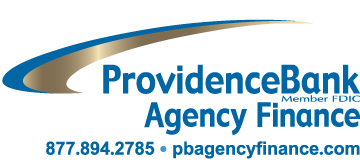Perpetuation (noun): the continuation, without end. Succession (noun): a following after. No matter which word you use, do you have a plan?
The aging population of insurance agents is a hot topic these days. What does that mean for the industry and what does that mean for you? It depends on what side of the equation you are on.
Whether you are in the early or late stages of your career, the steps you take toward your future should be deliberate and well-planned.
Perpetuation options generally fit into four categories: family, staff, peer or newcomer. Your kids can be great successors, as can loyal staff members. If those aren’t options, look for peers in your community with the same values. A final alternative is selling to a newcomer or larger aggregator.
Don’t be narrow in your search. Identifying your retirement objectives is important in determining which path may be right for you. If the highest valuation is your primary concern, then selling to your family or staff may not be the right choice, as those transactions usually result in the lowest valuations. If consistency for your customers is of the utmost importance, then transition to a family or staff member may be the best solution.
No matter how you go about it, here are five key considerations for a successful perpetuation:
1) Don’t look for your mirror image. Although you should find a successor that shares your values and work ethic, remember that they won’t be you. You grew with your agency, just like they will.
2) Prioritize a smooth customer transition. Your customers want an easy transition, so clear communication is imperative. Meet and greets may be a great way to introduce the new owner, whether they are in-house or external. Seeing both of you together in the same room will be reassuring.
3) Be realistic about the valuation. You will probably want more than the agency may be worth. But pouring your life into it doesn’t necessarily translate to quantifiable value. Where you fall on the spectrum for revenue growth, retention rates, customer demographics and carrier appointments will impact how much your successor is willing to pay and whether it’s financeable.
4) Seek advice. Engage your attorney, accountant and lenders early to ensure you understand the tax and legal considerations as you formulate your plan. You probably won’t want to finance the sale to your buyer on your own, so talking to lenders who understand your business is essential to understanding how the financing works and ensuring that your successor is financeable.
5) Plan, plan, plan. The definition of “insure” is to secure or protect someone against a possible contingency which is what you do every day. So do the same for your business by ensuring that you have a backup plan that meets your objectives should your first alternative not work. Remember: It’s never too early to start planning.
Melanie Otto is a senior vice president and director of agency finance at Providence Bank and specializes in providing financing to insurance agents. For the full article and more like this, visit Providence Bank online.

